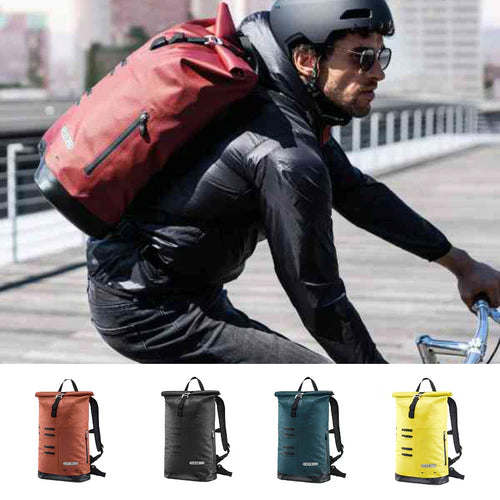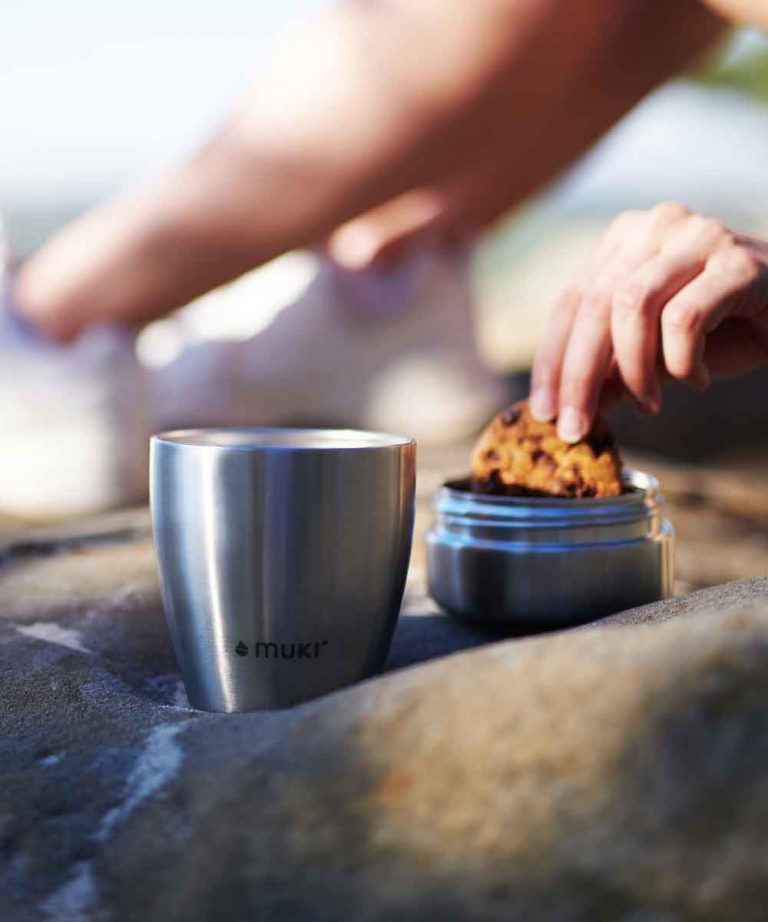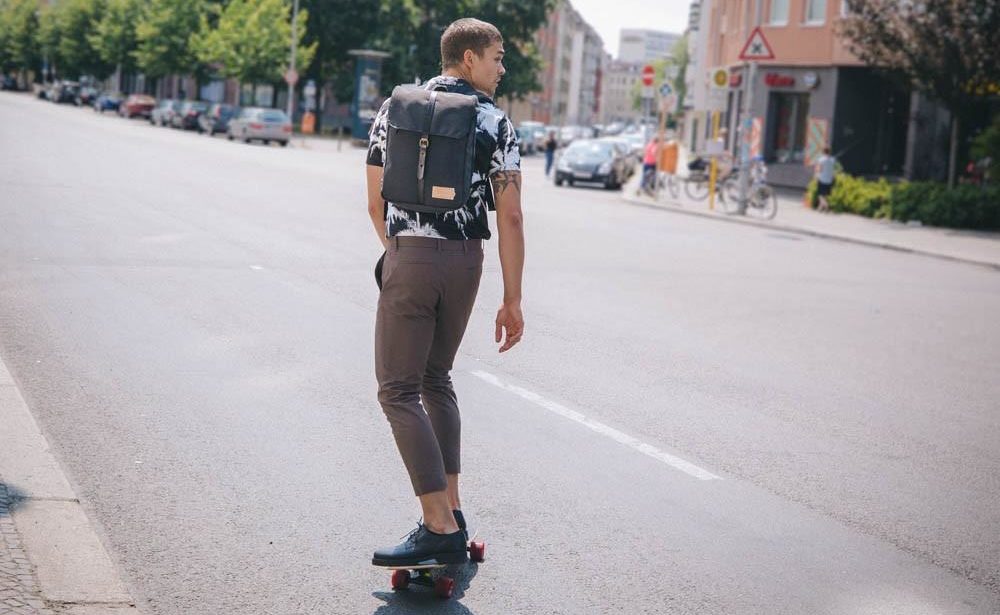Does living sustainably even make sense?
Living sustainably has meaning, definitely! By developing sustainable solutions, we could do a lot for the earth and thus our livelihood: Not only could we, for example, B. stop or at least slow down climate change and mitigate the greenhouse effect , but also slow down the omnipresent extinction of species . The disproportionate exploitation of many fish stocks, which is currently the sad reality, would be put to an end and the increasing water shortage in many regions of the world would be counteracted.
This means that living sustainably is now essential, for us and all future generations and of course also for the earth on which we are guests and for all other living beings who share this wonderful place with us.
The green household - sustainability at home
With just a few small changes, you can quickly and easily live more sustainably in your everyday life within your own four walls. We all know that we turn off the lights when we leave a room and don't leave the heating on unnecessarily. Just like when cooking, the pots fit exactly on the stove and should be covered with a lid whenever possible, as the heat energy then ends up almost entirely in the food and not in the air.
If there are leftovers after eating or if you want to keep what you have prepared fresh, reusable beeswax cloths are a good option instead of plastic and aluminum foil, or you can simply fill the finished food into reusable glass boxes or bowls that you cover with a suitable plate.
Real sustainability sins in the household are just like disposable films and many cleaning products : the chemicals they contain pollute our waters and the detergent surfactants are often based on unsustainable sources such as petroleum or palm oil. Microplastics and preservatives contained in some products can also disrupt the delicate ecological balance. Our tip: Homemade cleaners, which often only cost a fraction of well-known brand products, can help here:
- A mixture of soda and vinegar works against clogged pipes,
-
Citric acid is a wonderful descaler for pots and kettles.
- With baking soda and a little water, you can get even stubborn food residue in the oven under control. This practical and easy sustainable living DIY goes like this; Simply mix a sachet of baking soda with about three tablespoons of water, apply the paste to the stains and sweep the dried powder out of the oven after about 20 minutes. The underlying dirt can then be easily removed with a damp cloth.
Eat sustainably
The first of the sustainable living ideas in the area of nutrition will surprise many: In Germany alone, around 75 kilograms of food per capita per year ends up in household waste and is therefore produced for nothing. Nevertheless, they also cost water, fertilizer and energy to produce. So it's best to get into the habit of only buying what you can safely use and using up leftovers before they go bad. This not only protects your wallet, but also a lot of natural resources.
If you still have food or leftovers that you can't use in time, it's best to freeze them until you can use them. In the interests of sustainability, it is best to fill the frozen food in reusable and tightly sealing containers made of plastic or, ideally, of course, glass or stainless steel. When using liquids, make sure to leave some space in the container as the contents will expand when frozen.
To make your diet even more sustainable, you can support a local SoLaWi, i.e. solidarity agriculture. There, for a regular contribution, you get part of the harvest at a fixed rhythm, which is of course wonderfully regional and seasonal and has a minimal ecological footprint. In addition, many SoLaWis also operate according to biological principles and thereby contribute to maintaining an intact living environment. This is climate protection in action.
Ideally, you should also reduce your consumption of animal foods, as these usually require a lot more resources to produce than plant products. However, it still makes sense to pay attention to the origin of the food and, if in doubt, to choose local potatoes and soy products from France rather than quinoa and soy from South America.
Regional, seasonal, ecological, predominantly plant-based and without unnecessary waste is the recipe for environmentally friendly enjoyment.
On the go - sustainability when traveling
According to the motto “ Why wander into the distance, because the good is so close?” In terms of sustainability, it definitely makes sense to often replace beach holidays in distant countries with holidays in your own country or in places that can be reached by car or, even better, by train or bus. This way you can save a lot of pollutant emissions and also discover your own or neighboring country in a completely new way.
Beautiful places often appear that are not so far away. For example, do you know the impressive Saxon Switzerland or have you ever climbed one of the romantic old lighthouses on the German coast?
Accommodation options include certified hotels, guesthouses and campsites that, for example, work with green electricity, offer organically certified food or use ecological materials such as wood from sustainable forestry and non-toxic paints and varnishes in their construction.
Work and finances - invest sustainably
We normally work five days a week, so there are some opportunities for conscious and sustainable habits here too. Do you swing for the way to work e.g. For example, if you ride a bike or use public transport , you are ahead when it comes to sustainability. The same applies at work as at home: turn off the lights, turn down the heating and, above all, turn off PCs, printers and other electrical devices that are not needed for a long time, because standby also costs electricity. Carefully consider which emails really need to be printed out to save paper and motivate your colleagues to do the same. Maybe you can even get your company to use recycled paper and switch to green electricity?
The money you earn needs to be invested somewhere and the same applies here: keep your eyes open! If you don't want your assets to flow into the further destruction of our planet, you should open an account with a sustainable bank that deliberately does not invest in questionable, unethical and environmentally harmful projects. Examples of such banks are GLS Bank, Ethics Bank and Triodos Bank.
Internet and hardware
Always have the latest smartphone and a new laptop every few years because the old one has become too slow? Better not, because not only is the production of such devices extremely energy-intensive, but the raw materials they contain are often mined under the worst conditions and often by children.
There are now “ repair cafés ” in many cities, i.e. meetings where those present help each other to make broken devices functional again. Take advantage of this offer if you can, not only will you keep your devices alive longer, but you can also learn a lot. Even a malfunction or a full hard drive doesn't have to mean the end of a PC: old, no longer needed (junk) files can be deleted and hard drives reformatted with just a few mouse clicks.
If a virus has taken hold of your PC, then one of the many professional computer specialists will definitely be able to help you. If you are not dependent on the latest generation of devices from the start, professionally prepared second-hand goods are a worthwhile alternative, because they are usually so well restored that they are almost in no way inferior to the new devices.
Even with a used laptop or smartphone you can still save considerable energy. Every search query on the Internet, every email and every video streaming requires a lot of resources and if the World Wide Web were a country, it would have the sixth highest energy consumption in an international comparison. So it's best to try to organize your thoughts a little before you research something or send a message, maybe this will save you a click or two.
Sustainable clothing
The same applies to outfits: second hand is king! Following every new fashion trend and sorting out your wardrobe at short intervals is really not necessary, expensive and of course a waste of valuable raw materials. Better to try to find your own style that you always enjoy wearing. This means you can use your clothes year after year and always enjoy them.
Often you don't need a completely new wardrobe to look different. A different combination of your favorite pieces or a little creative upcycling such as: B. a sewn-on bag made from old fabric scraps works wonders when it comes to fashion variety. Second-hand clothing is particularly useful when living sustainably with a baby , because the little ones grow out of most of the items in no time anyway, so second-hand baby clothing is usually rarely worn and in perfect condition.
Very few of us will fill our entire wardrobe with used clothes. If you buy something new, then from an ethical and environmental point of view, ecologically produced and fairly traded clothing is best. These are often made to a particularly high quality, so that you don't have to replace them again soon and the money invested pays off.
What does sustainable work mean for Fair Couture?
We offer you 100% sustainable products that are manufactured and traded under fair conditions. In addition tosustainable backpacks and bags, you can also find accessories with us. We not only rely on new materials, but also use recycled raw materials in order to conserve natural resources as much as possible. That's why we ship your order 100% climate-neutrally.
Sustainable business is a matter close to our hearts and we would like to share it with you too.






